On the afternoon of October 3, 2023, the Royal Swedish Academy of Sciences announced that the 2023 Nobel Prize in Physics went to three scientists: Pierre Agostini (French), Ferenc Krausz (Austrian-Hungarian) and Anne L" Huillier (Swedish-French) for "experimental methods of generating attosecond light pulses for the study of electron dynamics in matter".
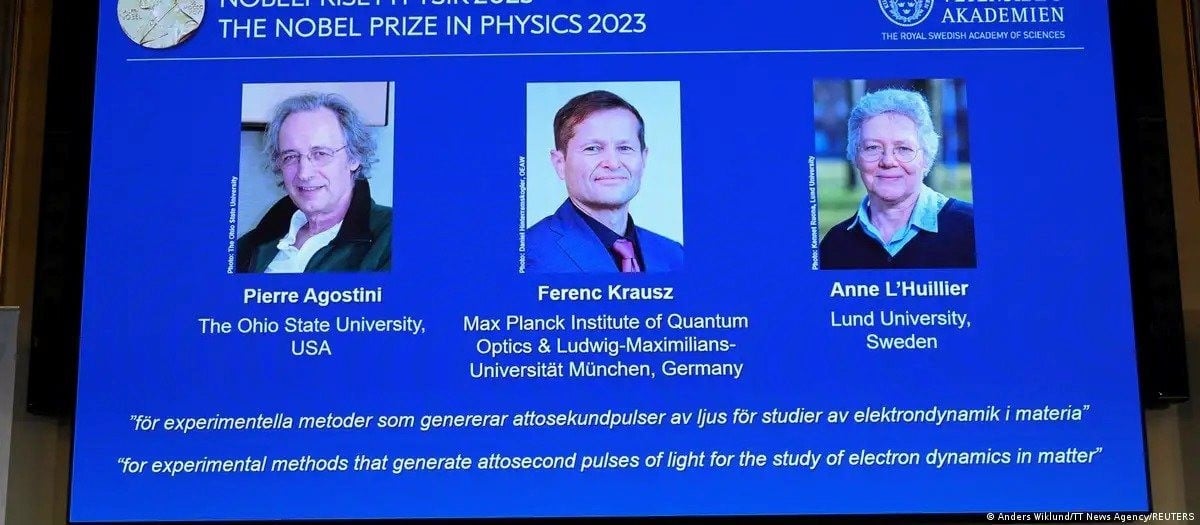 |
| Three scientists who received the Nobel Prize in Physics have given humanity new tools to explore the world inside atoms. (Source: Reuters) |
Pierre Agostini, Ferenc Krausz and Anne L'Huillier were honored for experiments that have given humanity new tools to explore the world of electrons inside atoms and molecules. They demonstrated a method for generating ultra-short pulses of light that can be used to measure rapid processes in which electrons move or change energy.
This is the second award announced in the 2023 Nobel Prize season. Previously, on the afternoon of October 2, the Nobel Assembly at the Karolinska Institute in Stockholm announced the 2023 Nobel Prize in Medicine to two scientists, Katalin Kariko (Hungary) and Drew Weissman (USA) for their contributions to the development of an effective mRNA vaccine to prevent Covid-19.
The next prizes to be announced include the Nobel Prize in Chemistry (October 4) and the Nobel Prize in Literature (October 5). The Nobel Peace Prize is the only prize to be announced in Oslo, Norway, on October 6. Meanwhile, the Nobel Prize in Economics will close the 2023 Nobel Week on October 9.
The Nobel Prize award ceremony will be held on December 10 in Stockholm (Sweden) and Oslo (Norway) with each prize worth 11 million Swedish Crowns (986,000 USD), an increase of 1 million Swedish Crowns compared to 2022.
Let's look back at the Nobel Prizes in Physics in the last 10 years:
- 2022: The prize goes to three scientists, Alain Aspect (France), John F. Clauser (USA) and Anton Zeilinger (Austria) for "experiments with photons in quantum entanglement, establishing violations of Bell inequalities and pioneering quantum information science". Their research results have paved the way for the application of new technologies as well as extensive research areas such as quantum computers, quantum networks and quantum communications.
- 2021: The Nobel Prize in Physics goes to three scientists, Syukuro Manabe (Japanese-American), Klaus Hasselmann (German) and Giorgio Parisi (Italian), for their research on "physical modeling of the Earth's climate and quantifying accurate predictions of global warming" as well as groundbreaking contributions to scientists' understanding of complex physical systems.
- 2020: The Nobel Prize in Physics honored three scientists, Roger Penrose (British), Reinhard Genzel (German) and Andrea Ghez (American), for their research on black holes. The research of the three scientists has made important contributions to the field of astrophysics, helping to decode the mysteries of the universe.
- 2019: The 2019 Nobel Prize in Physics honored three scientists, half of which went to Canadian-American James Peebles for his theoretical discoveries in cosmology, and the other half went to two Swiss scientists, Michel Mayor and Didier Queloz, for their discoveries of exoplanets orbiting a Sun-like star. The research works of the three scientists have contributed to changing people's perception of the universe, helping humanity find the eternal answer to whether life exists outside the universe.
- 2018: Three scientists, Arthur Ashkin (American), Gerard Mourou (French) and Donna Strickland (Canadian), won the 2018 Nobel Prize in Physics for their groundbreaking inventions in the field of laser physics. This invention has revolutionized laser physics, helping researchers explore extremely small objects and super-fast processes. These ultra-precise devices help open up new fields of research, with many applications in industry and medicine.
- 2017: Three American scientists, Rainer Weiss, Barry C. Barish and Kip S. Thorne, were jointly awarded the 2017 Nobel Prize in Physics for their discovery of gravitational waves, ripples in space-time generated by violent events such as black hole mergers.
- 2016: Three British scientists, David J. Thouless, Duncan Haldane and Michael Kosterlitz, were jointly awarded the 2016 Nobel Prize in Physics for their theoretical discoveries on topological phase transitions and topological phases of matter. Many believe that this research will pave the way for future applications in both materials science and electronics.
- 2015: The prize went to Japanese scientist Takaaki Kajita and Canadian scientist Arthur B. McDonald, for proving that elementary particles (neutrinos) have mass. This discovery changed much of humanity's understanding in the field of space research.
- 2014: Two Japanese scientists, Isamu Akasaki and Hiroshi Amano, and Japanese-American scientist Shuji Nakamura won the 2014 Nobel Prize in Physics for their invention of a new, environmentally friendly and highly efficient light source, also known as Fluorescent Diode (LED). Thanks to the invention of LEDs, humans have an efficient and long-lasting energy source to replace traditional light sources. LEDs also contribute to the protection of Earth's resources.
- 2013: The Nobel Prize in Physics was awarded to two scientists, Peter Higgs (British) and Francois Englert (Belgian) for the discovery of the Higgs Boson particle, also known as the “God Particle”, which helps explain the existence of mass. Proving the existence of the Higgs particle has created an important scientific milestone. It can help humans explain why all forms of matter in the universe have mass. Not only is it meaningful to the universe, with the Higgs particle, humans will have a new source of energy, helping to create breakthrough technological achievements in transportation and telecommunications...
Source





![[Photo] Prime Minister Pham Minh Chinh chairs meeting on railway projects](https://vphoto.vietnam.vn/thumb/1200x675/vietnam/resource/IMAGE/2025/10/23/1761206277171_dsc-9703-jpg.webp)
![[Photo] General Secretary To Lam and his wife begin their official visit to Bulgaria](https://vphoto.vietnam.vn/thumb/1200x675/vietnam/resource/IMAGE/2025/10/23/1761174468226_tbtpn5-jpg.webp)





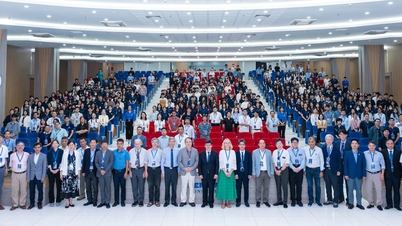

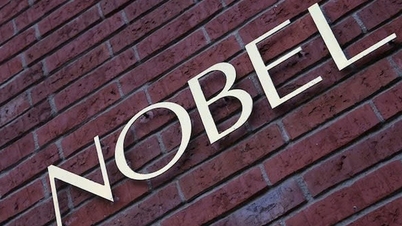

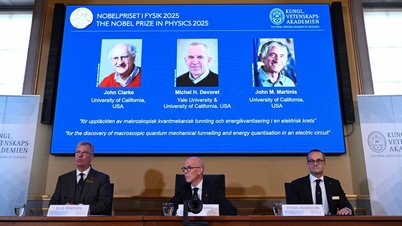




































































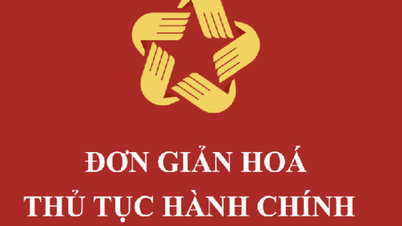
























Comment (0)